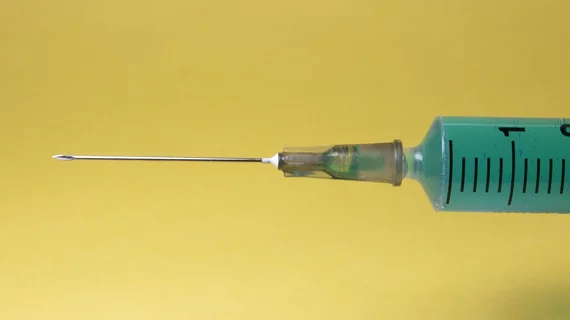Duke researchers present new vaccine to prevent all future COVID-like pandemics
Researchers at Duke University are working on a vaccine that has the potential to stop future pandemics by protecting against a variety of coronavirus infections that can jump from animals to humans.
The pan-coronavirus vaccine has so far been 100% effective in non-human tests, including relevant primate tests, Duke researchers said May 17 in a Youtube briefing. Two of the vaccine’s researchers spoke about the results with reporters and outlined the vaccine’s potential.
The vaccine works by creating antibodies that are not only stimulated to protect against SARS-CoV-2, “but also to all coronaviruses that circulate in animals,” said Kevin Saunders, PhD, director of research, Duke Human Vaccine Institute.
So far, the vaccine has not been tested in human trials, and there are some concerns it will need to be boosted again, said Bart Haynes, MD, director, Duke Human Vaccine Institute.
“We’re expecting that in one year or two years, there’s a good chance the population of the United States will have to be boosted again,” Haynes said. “We’re working to get this particular vaccine candidate made ... so it can be put into humans in what’s called a phase 1 safety trial and get it through that trial as quickly as possible.”
The vaccine was also based off what researchers already knew about HIV and the institute’s work on an HIV vaccine.
“We knew the SARS-CoV-2 virus was an RNA virus—that means the kind of genetic material it uses—and has the same kind of genetic material the HIV virus uses,” Haynes explained. “The HIV virus is one of the most rapidly evolving life forms that we know, because RNA viruses tend to make mistakes as they replicate. And we knew the SARS-CoV-2 virus would also develop mutants that would escape our immune system as our immune system made antibodies against it.”
Anthony Fauci, MD, director of the National Institutes of Allergy and Infectious Disease and White House senior adviser on the pandemic, addressed the vaccine as “potentially exciting.” Fauci was bullish on further development, stating, “this is an extremely important proof of concept that we will be aggressively pursuing as we get into the development of human trials.”

